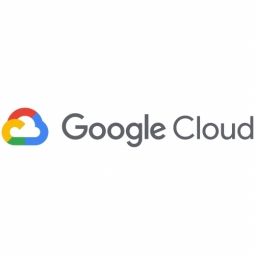Technology Category
- Analytics & Modeling - Big Data Analytics
- Cybersecurity & Privacy - Identity & Authentication Management
Applicable Industries
- Cement
- Equipment & Machinery
Applicable Functions
- Sales & Marketing
Use Cases
- Behavior & Emotion Tracking
- Livestock Monitoring
Services
- Cloud Planning, Design & Implementation Services
- Data Science Services
About The Customer
Bending Spoons is a technology company based in Italy, responsible for over 20 popular apps. The company focuses on delivering an excellent user experience with a data-driven approach. Their portfolio includes the popular app, 30 Day Fitness, and in total, their apps have been downloaded 120 million times. Bending Spoons' business model is built around auto-renewable subscriptions and in-app purchases, with a little advertising revenue. The company uses data science to make decisions about which apps to develop based on potential market reach and monetization possibilities.
The Challenge
Bending Spoons, a Milan-based app developer, was faced with the challenge of standing out in a saturated marketplace where hundreds of apps often offer similar functionalities. The company needed to make data-driven decisions to identify the best apps to develop and optimize them for user experience. Their business model, built around auto-renewable subscriptions and in-app purchases, required a deep understanding of user behavior. However, to make these data-driven choices and grow the business, Bending Spoons needed to analyze large volumes of data very quickly. They were looking for a powerful data storage and analysis system that didn't require specialist technical support. Additionally, as a start-up, they wanted to grow quickly without investing too much in operations and infrastructure, but also needed the capacity to expand rapidly once the business grew.
The Solution
Bending Spoons implemented BigQuery on Google Cloud to provide the analytics power for its internal data tools. This allowed them to analyze usage data and in-app events using their internal Pico tool. They collected data points from advertising platforms and app stores, and used BigQuery to perform hundreds of thousands of queries with this data daily. BigQuery enabled them to aggregate the raw data by segment or type of user and carry out complex queries across these segments. They also used Google Cloud to host some of their apps with Compute Engine and App Engine, and started using Kubernetes Engine to run certain data tasks. Another internal tool connected to BigQuery, called Crystal, collected hundreds of millions of data points from their own apps as well as a lot of external sources, every day, and then fed them to a number of models they've created, doing most of the computational heavy lifting for them.
Operational Impact
Quantitative Benefit

Case Study missing?
Start adding your own!
Register with your work email and create a new case study profile for your business.
Related Case Studies.

Case Study
Smart Water Filtration Systems
Before working with Ayla Networks, Ozner was already using cloud connectivity to identify and solve water-filtration system malfunctions as well as to monitor filter cartridges for replacements.But, in June 2015, Ozner executives talked with Ayla about how the company might further improve its water systems with IoT technology. They liked what they heard from Ayla, but the executives needed to be sure that Ayla’s Agile IoT Platform provided the security and reliability Ozner required.

Case Study
IoT enabled Fleet Management with MindSphere
In view of growing competition, Gämmerler had a strong need to remain competitive via process optimization, reliability and gentle handling of printed products, even at highest press speeds. In addition, a digitalization initiative also included developing a key differentiation via data-driven services offers.

Case Study
Predictive Maintenance for Industrial Chillers
For global leaders in the industrial chiller manufacturing, reliability of the entire production process is of the utmost importance. Chillers are refrigeration systems that produce ice water to provide cooling for a process or industrial application. One of those leaders sought a way to respond to asset performance issues, even before they occur. The intelligence to guarantee maximum reliability of cooling devices is embedded (pre-alarming). A pre-alarming phase means that the cooling device still works, but symptoms may appear, telling manufacturers that a failure is likely to occur in the near future. Chillers who are not internet connected at that moment, provide little insight in this pre-alarming phase.

Case Study
Premium Appliance Producer Innovates with Internet of Everything
Sub-Zero faced the largest product launch in the company’s history:It wanted to launch 60 new products as scheduled while simultaneously opening a new “greenfield” production facility, yet still adhering to stringent quality requirements and manage issues from new supply-chain partners. A the same time, it wanted to increase staff productivity time and collaboration while reducing travel and costs.

Case Study
System 800xA at Indian Cement Plants
Chettinad Cement recognized that further efficiencies could be achieved in its cement manufacturing process. It looked to investing in comprehensive operational and control technologies to manage and derive productivity and energy efficiency gains from the assets on Line 2, their second plant in India.

Case Study
Integration of PLC with IoT for Bosch Rexroth
The application arises from the need to monitor and anticipate the problems of one or more machines managed by a PLC. These problems, often resulting from the accumulation over time of small discrepancies, require, when they occur, ex post technical operations maintenance.







